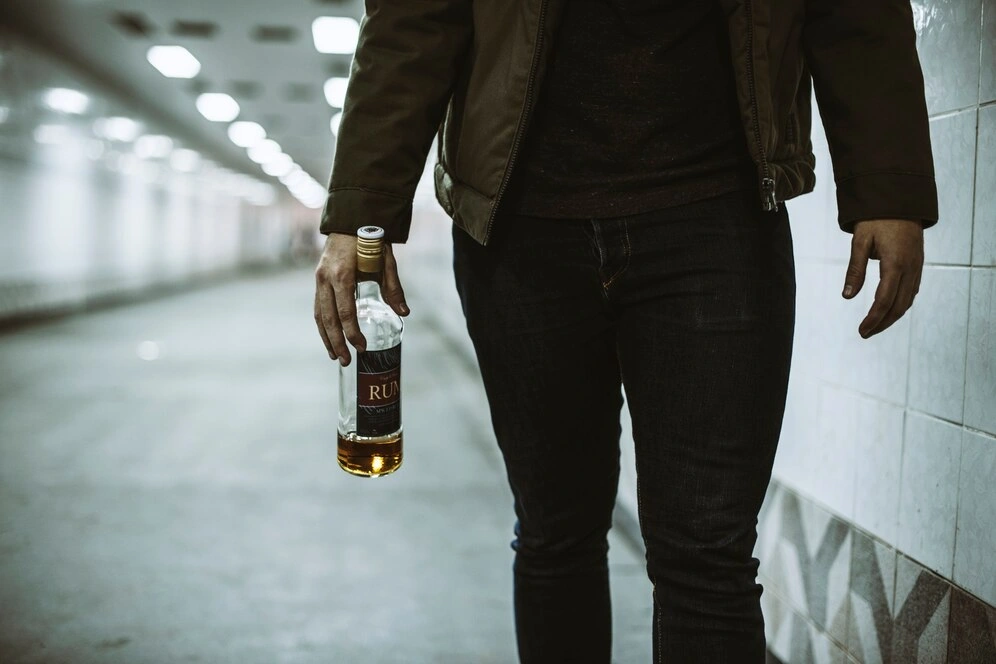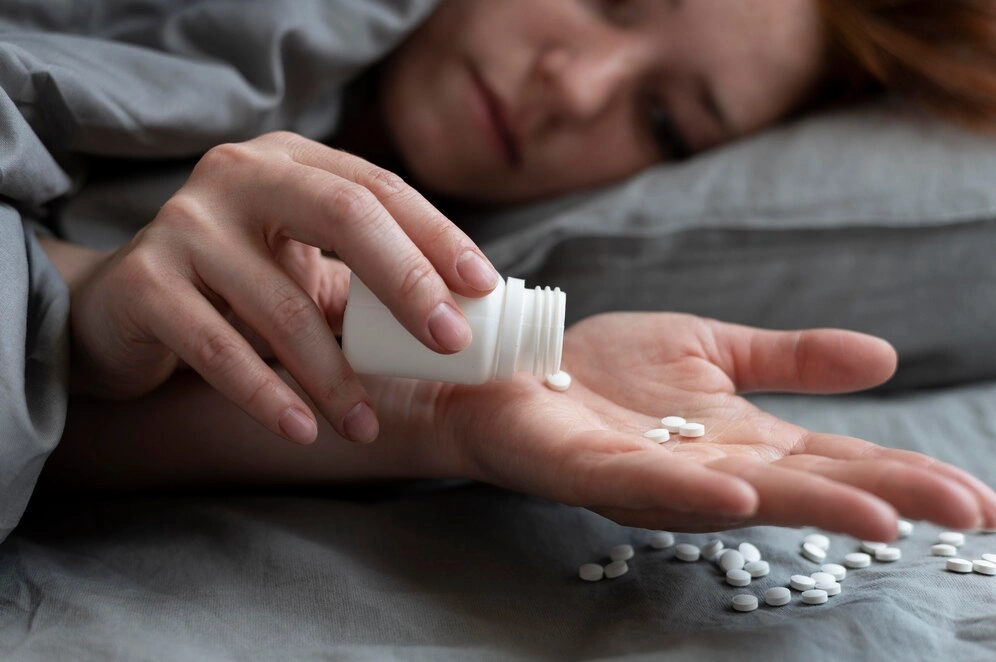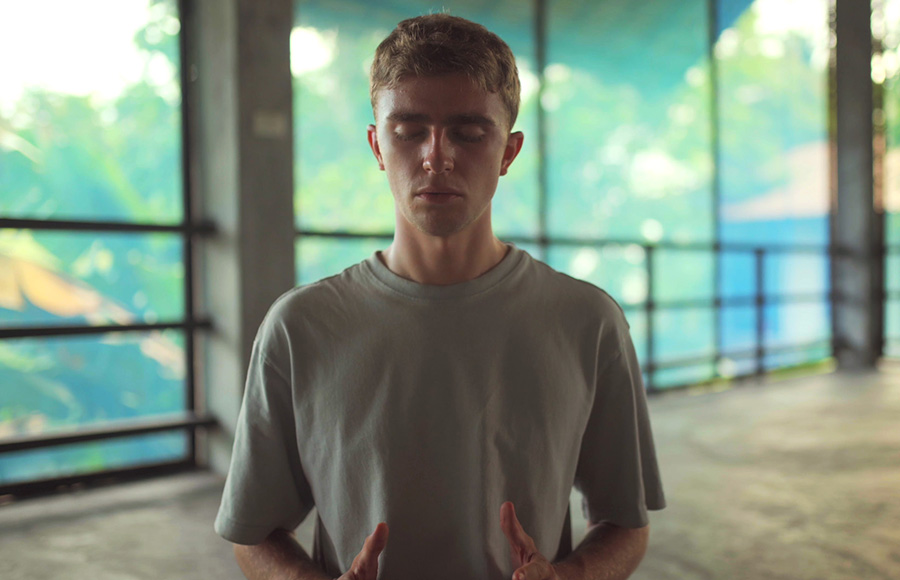
Addiction & Trauma Recovery Center
Licensed by Thai Ministry of Health #84-03-00294
Depressants: Alcohol, Benzodiazepines, and Barbiturate Addiction
What Are Depressants?
Depressants are substances that slow down the central nervous system, leading to relaxation, sedation, and decreased anxiety. While they are commonly prescribed for anxiety, insomnia, and seizures, depressant addiction can develop quickly with prolonged or improper use.
Commonly abused depressants include:
- Alcohol – The most widely used depressant worldwide.
- Benzodiazepines (Benzos) – Medications like Xanax, Valium, Ativan, and Klonopin.
- Barbiturates – Older sedatives, now rarely prescribed due to their high overdose potential.
Despite their calming effects, depressants can be highly addictive, and alcohol and benzodiazepine withdrawal can be dangerous—sometimes even fatal.
It is important to highlight the dual nature of these substances: while they can provide significant therapeutic benefits when used as prescribed, their misuse or abuse can lead to severe consequences. For example, benzodiazepines, though effective for treating anxiety and panic disorders, can cause physical dependence in as little as a few weeks of regular use.
Similarly, alcohol, despite its social acceptance, is one of the most dangerous substances to withdraw from, with symptoms ranging from tremors and seizures to life-threatening delirium tremens (DTs). Additionally, combining depressants with other substances, such as opioids or stimulants, significantly increases the risk of overdose and death.
Understanding these risks underscores the importance of using depressants only under strict medical supervision and seeking professional help if dependence or addiction develops. Public awareness and education about the dangers of depressant misuse are also critical in reducing their widespread abuse.

Commonly Abused Depressant Drugs
1. Alcohol
Alcohol is legal, widely available, and socially accepted. However, long-term alcohol abuse can lead to physical dependence, organ damage, and mental health issues.
Effects of Alcohol Use:
- Slurred speech
- Impaired judgment and coordination
- Memory loss and blackouts
Long-Term Risks:
- Liver disease (cirrhosis)
- Heart disease and high blood pressure
- Increased risk of mental health disorders (anxiety, depression)
Alcohol is often glamorized in the media and deeply embedded in social rituals, making it difficult for individuals to recognize when their consumption has crossed into problematic territory. For instance, binge drinking, which is common among young adults, can lead to acute health risks such as alcohol poisoning, accidents, and risky behaviors, while chronic use can result in irreversible damage to the brain, liver, and other organs.
Additionally, alcohol abuse often co-occurs with mental health disorders, creating a vicious cycle where individuals use alcohol to self-medicate symptoms of anxiety or depression, only to exacerbate these conditions over time. Addressing alcohol addiction requires not only individual treatment but also broader efforts to challenge societal norms around drinking and promote healthier coping mechanisms.
Early intervention and education about the risks of alcohol misuse are key to reducing its impact on individuals and communities.
2. Benzodiazepines
Benzodiazepines (benzos) are prescribed for anxiety, insomnia, and seizures. They are effective but carry a high risk of addiction and dangerous withdrawal symptoms.
Common Benzodiazepines:
- Xanax (Alprazolam)
- Valium (Diazepam)
- Ativan (Lorazepam)
- Klonopin (Clonazepam)
Benzodiazepines work by enhancing the effects of GABA, a neurotransmitter that calms the brain, but this mechanism also makes them highly addictive. Over time, the brain becomes reliant on benzodiazepines to function normally, leading to tolerance (needing higher doses for the same effect) and dependence.
Abruptly stopping benzodiazepines can trigger severe withdrawal symptoms, including seizures, hallucinations, and life-threatening complications, which is why a medically supervised tapering process is essential. Additionally, benzodiazepines are often misused in combination with other substances, such as alcohol or opioids, significantly increasing the risk of overdose and death.
Educating both patients and healthcare providers about the risks of long-term benzodiazepine use and promoting alternative treatments for anxiety and insomnia, such as therapy or non-addictive medications, can help mitigate these dangers.
3. Barbiturates
Barbiturates were widely used before benzodiazepines became popular. They are rarely prescribed today due to their high overdose potential.
Common Barbiturates:
- Phenobarbital
- Secobarbital
- Amobarbital
Barbiturates were once a common treatment for anxiety, insomnia, and seizures, but their narrow therapeutic index—meaning the difference between a therapeutic dose and a lethal dose is very small—makes them extremely dangerous. Even a slight increase in dosage can lead to respiratory depression, coma, or death, which is why they have largely been replaced by safer alternatives like benzodiazepines.
However, barbiturates are still used in specific medical situations, such as managing certain types of epilepsy or for anesthesia during surgery. Despite their limited use, barbiturates remain a drug of abuse, often sought for their sedative and euphoric effects. Misuse of barbiturates can quickly lead to physical dependence, severe withdrawal symptoms, and a high risk of fatal overdose, especially when combined with other depressants like alcohol or opioids.
This underscores the importance of strict medical supervision and public awareness about the dangers of barbiturate misuse.


The Risks of Mixing Depressants
One of the most dangerous aspects of depressant addiction is the tendency to mix substances. The risks of mixing depressants are severe and often fatal.
Why Is Mixing Alcohol and Benzodiazepines Dangerous?
Combining alcohol with benzodiazepines can increase sedation, slow breathing, and cause overdose. Many overdose deaths involve a combination of alcohol, benzos, and opioids.
Risks of Combining Alcohol with Other Depressants:
- Severe respiratory depression – Breathing can slow or stop completely.
- Loss of consciousness – Users may pass out and choke on their vomit.
- Increased overdose risk – Small amounts of each substance together can be lethal.
What Happens When You Mix Benzos and Barbiturates?
Benzodiazepines and barbiturates both suppress the nervous system, increasing the risk of:
- Coma and unconsciousness
- Severe memory loss (amnesia-like effects)
- Respiratory arrest leading to death
Due to these risks, individuals struggling with depressant addiction should never attempt to detox alone.
These substances amplify each other’s effects on the central nervous system, creating a potentially lethal synergy. For example, both alcohol and benzodiazepines act on GABA receptors in the brain, but when combined, they can suppress vital functions like breathing and heart rate to dangerous levels.
This is why even small amounts of each substance, which might be safe when taken individually, can become deadly when used together. Additionally, mixing depressants often impairs judgment, making individuals less aware of their deteriorating condition and less likely to seek help in time. The risk of fatal overdose is further compounded when opioids are added to the mix, as all three substances depress respiratory function.
This underscores the critical need for professional medical supervision during detox and treatment, as well as public education about the life-threatening risks of combining depressants. Addressing this issue requires a multifaceted approach, including stricter prescribing practices, harm reduction strategies, and accessible addiction treatment options.
Safe Detox and Withdrawal Management
Unlike many other substances, withdrawal from depressants can be fatal. This is particularly true for alcohol and benzodiazepine withdrawal, which can cause seizures, hallucinations, and extreme agitation.
Why Can Withdrawal from Depressants Be Fatal?
When someone suddenly stops using depressants, the brain struggles to function without them. This can cause:
- Seizures – A life-threatening risk in alcohol and benzo withdrawal.
- Hallucinations and paranoia – Especially in Delirium Tremens (DTs) from alcohol withdrawal.
- Severe anxiety, panic attacks, and suicidal thoughts.
Safe Detox Methods for Alcohol and Benzodiazepine Addiction
Because of these risks, medically supervised detox is the safest way to withdraw from depressants.
- Medical Supervision – Detox should be done in a rehab or hospital setting.
- Tapering Off – Instead of quitting cold turkey, doctors gradually lower doses.
- Medication-Assisted Detox – Doctors may prescribe safer medications to ease withdrawal.
- Hydration & Nutrition – Dehydration and malnutrition worsen withdrawal symptoms.
Each person’s experience with depressant addiction is unique, influenced by factors such as the type of substance used, the duration of use, and any co-occurring medical or mental health conditions. For instance, someone withdrawing from long-term benzodiazepine use may require a carefully monitored tapering schedule over weeks or even months to avoid severe withdrawal symptoms, while someone experiencing alcohol withdrawal might need immediate medical intervention to prevent life-threatening complications like Delirium Tremens (DTs).
Additionally, medications such as anticonvulsants, beta-blockers, or sedatives may be used during detox to manage symptoms and stabilize the individual. Beyond the physical aspects of detox, emotional and psychological support is equally important, as withdrawal can be an intensely distressing experience.
Integrating counseling and peer support during detox can help individuals stay motivated and prepare for the next steps in their recovery journey. This comprehensive approach ensures not only safety but also a stronger foundation for long-term sobriety.
Treatment for Depressant Addiction
Once detox is complete, long-term recovery requires therapy, lifestyle changes, and relapse prevention strategies.
How Can One Safely Detox from Depressants?
- Inpatient rehab – 24/7 medical monitoring to prevent severe withdrawal effects.
- Outpatient treatment – Therapy and medical support without full-time supervision.
- Medication management – In some cases, longer-acting benzodiazepines are used to taper off safely.
Behavioral Therapies for Depressant Addiction
- Cognitive Behavioral Therapy (CBT) – Helps change negative thought patterns related to substance use.
- Dialectical Behavior Therapy (DBT) – Helps regulate emotions and improve coping skills.
- Motivational Interviewing (MI) – Encourages patients to commit to sobriety.
Support Groups for Long-Term Recovery
- Alcoholics Anonymous (AA) – A 12-step program for alcohol addiction.
- Narcotics Anonymous (NA) – A recovery group for prescription drug and benzo addiction.
- SMART Recovery – A science-based alternative to 12-step programs.
While detox addresses the immediate physical dependence, therapy and support groups help individuals uncover the root causes of their addiction, such as trauma, stress, or co-occurring mental health disorders. Cognitive Behavioral Therapy (CBT) and Dialectical Behavior Therapy (DBT) are particularly effective in teaching individuals how to manage triggers, cope with cravings, and build healthier thought patterns.
Additionally, support groups like Alcoholics Anonymous (AA) and Narcotics Anonymous (NA) provide a sense of community and accountability, which are essential for maintaining long-term sobriety. Lifestyle changes, such as adopting a regular exercise routine, practicing mindfulness, and pursuing new hobbies, can also play a significant role in reducing stress and preventing relapse.
By combining medical treatment, therapy, and community support, individuals can create a comprehensive recovery plan that fosters lasting change and improves overall well-being.
FAQs About Depressant Addiction
Why can withdrawal from depressants be fatal?
Withdrawal from alcohol and benzodiazepines can cause seizures, hallucinations, and extreme agitation, which can be deadly without medical supervision.
Depressants like alcohol and benzodiazepines work by enhancing the effects of GABA, a neurotransmitter that slows down brain activity and promotes relaxation. Over time, the brain adapts to the presence of these substances by reducing its natural production of GABA and increasing the activity of excitatory neurotransmitters like glutamate.
When depressant use is suddenly stopped, the brain is left in a hyperexcitable state, leading to dangerous symptoms such as seizures, delirium, and cardiovascular instability. For example, Delirium Tremens (DTs), a severe form of alcohol withdrawal, can cause life-threatening complications like high fever, irregular heart rhythms, and respiratory failure. Similarly, abrupt cessation of benzodiazepines can trigger seizures and psychosis.
This is why medically supervised detox is critical—it allows for a gradual tapering of the substance and the use of medications to stabilize brain activity, reducing the risk of fatal complications. Understanding these risks underscores the importance of seeking professional help rather than attempting to quit depressants cold turkey.
What are the signs of depressant addiction?
Signs include increased tolerance, cravings, withdrawal symptoms, memory problems, and risky behaviors like mixing depressants.
Individuals struggling with depressant addiction may exhibit changes in their daily routines, such as neglecting responsibilities at work, school, or home, or withdrawing from social activities they once enjoyed. They might also engage in secretive behaviors, such as hiding their substance use or lying about how much they consume.
Psychological signs can include mood swings, irritability, and increased anxiety or depression, especially when the substance is not available. Additionally, individuals may prioritize obtaining and using depressants over other aspects of their lives, leading to financial problems or strained relationships.
Recognizing these signs early is crucial for seeking help before the addiction progresses to more severe health complications or dangerous behaviors, such as mixing depressants with other substances, which significantly increases the risk of overdose and death. Early intervention and comprehensive treatment can help individuals regain control of their lives and achieve long-term recovery.
How can one safely detox from depressants?
Detox should be medically supervised, with gradual tapering and medications to manage withdrawal symptoms.
When considering how to safely detox from depressants, it’s crucial to understand the risks Detoxing from depressants like alcohol or benzodiazepines is not only physically challenging but also emotionally taxing, as individuals may experience intense anxiety, depression, or cravings during the process.
Medically supervised detox ensures that healthcare professionals can monitor vital signs, manage complications like seizures or delirium, and provide medications to ease symptoms. For example, longer-acting benzodiazepines like diazepam may be used to taper individuals off shorter-acting ones like Xanax, reducing the risk of severe withdrawal. Similarly, medications like anticonvulsants or beta-blockers can help stabilize the nervous system during alcohol detox.
Beyond the physical aspects, a supervised detox setting often includes emotional support and counseling, which can help individuals stay motivated and prepare for the next steps in their recovery journey. This comprehensive approach minimizes risks and sets the stage for a successful transition to long-term treatment and sobriety.
Conclusion
Depressant addiction, whether involving alcohol, benzodiazepines, or barbiturates, is highly dangerous and requires professional intervention. The risks of mixing depressants increase the chances of overdose, and withdrawal from alcohol and benzodiazepines can be fatal.
If you or a loved one is struggling with depressant addiction, seek professional help immediately. Safe detox methods for alcohol and benzodiazepine addiction, combined with therapy and long-term support, can help individuals recover safely.
Depressant addiction often stems from deeper issues such as trauma, chronic stress, or untreated mental health conditions, which require comprehensive treatment to resolve. For example, therapies like Cognitive Behavioral Therapy (CBT) and trauma-focused counseling can help individuals understand and heal from the emotional wounds that may have contributed to their substance use.
Additionally, long-term support through peer groups, such as Alcoholics Anonymous (AA) or Narcotics Anonymous (NA), provides a sense of community and accountability that is vital for maintaining sobriety. Recovery is a journey that requires patience, commitment, and access to the right resources.
By seeking professional help and building a strong support network, individuals can not only overcome depressant addiction but also rediscover hope, purpose, and a healthier way of living.





















